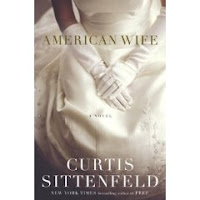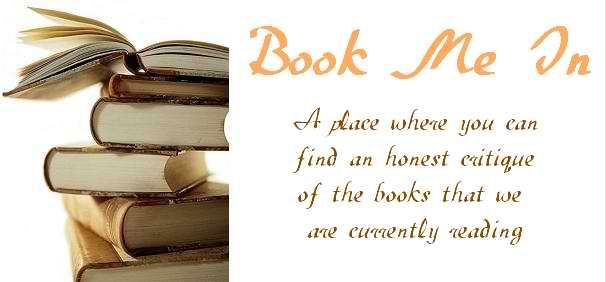 "American Wife" is a novel that made headlines when it came out- not just because the author (Curtis Sittenfeld) is a celebrated writer who had many fans eagerly anticipating her next work, but because her book, "American Wife" was sold as work of fiction, based loosely on First Lady- Laura Bush, a woman who is often in the public eye but has remained largely out of the spotlight.
"American Wife" is a novel that made headlines when it came out- not just because the author (Curtis Sittenfeld) is a celebrated writer who had many fans eagerly anticipating her next work, but because her book, "American Wife" was sold as work of fiction, based loosely on First Lady- Laura Bush, a woman who is often in the public eye but has remained largely out of the spotlight."American Wife" is the story of Alice Lindgren, a bookish, thoughtful woman who marries a wealthy, carefree Charlie Blackwell- a man from a political family who is so similar to George W. Bush, you can almost here G.W.B reading the lines of Charlie as you read. There are many more parallels between the novel and the life we know of Laura Bush- both grow up Democrats, both have beginning careers as librarians, both are involved in car accidents that result in death, both marry men who have addictions to alcohol and later become President, both of their husbands are fighting an unpopular war... and the list could continue.
The genuis of Sittenfeld's writing is that she creates characters that are so flawed, so entrenched in personal drama yet still relatable- still likeable. Though Charlie Blackwell is thoughtless and often selfish- a man who puts his country into an unpopular war, I still found myself drawn to his character. Charlie's parents (who you cannot read about without immediately thinking of George Bush Senior and Barbra Bush) are portrayed just as you would imagine the REAL couple to be- a highly political couple who are deeply aware of 'appearances' and 'proper behavior' but who have been peppered by Sittenfeld with enough charm that they become likeable.
One of the greatest moments of the novel was how Sittenfeld shows how love can change politics, and how politics cannot change personal beliefs. Laura Bush (like Alice Lindgren) has been asked about abortion and has shown in interviews to be pro-choice. I had always wondered how a pro-choice First Lady could resolve herself to marry a man who she knew was pro-life, and could (or would) affect policy to reflect his belief. Sittenfeld expertly answers this in her book, through a paragraph that stands out to me both for it's simplicity and thoughtfulness. It is shortly after she has decided to marry Charlie Blackwell.
If I were to tell the story of my life (I have repeatedly declined the opportunity)... I would probably feel tempted to say that standing that night just inside my apartment, me in my nightgown and Charlie in jeans and a red shirts, I made a choice: I hose our relationship over my political convictions, love over ideology. But again, this would false honesty; it would once more contribute to a narrative arc that is satisfying rather than accurate. My convictions were internal- I'd rarely seen the point in expressing them aloud, and if I had, my entire political outlook could have been summarized by the statement that I felt bad for poor people and was glad abortion had become legal. And so I didn't choose anything in this moment. I had met Charlie a matter of weeks before, and already the idea of living without him made me feel like a fish flopping in the sand. To go from being a Democrat to a Republican, or at least to pretend, through smiling obfuscation, that I had- this was a small price to pay for the water washing back over me, allowing me to breathe.
Along with her ability to clearly capture the best and worst of humans and find yourself rooting for characters who remind you of people in your 'real life' that you cannot fathom liking, and her ability to give explanation to choices often not discussed, Sittenfeld manages to expertly weave in political commentary, with issues such as class, race, homosexuality, love and wealth and the result is a beautiful, thought provoking novel.
I admit, it's long (over 500 pages) but it's a quick read and book that makes you feel sad when it's over. And isn't that the measure of a good book?


